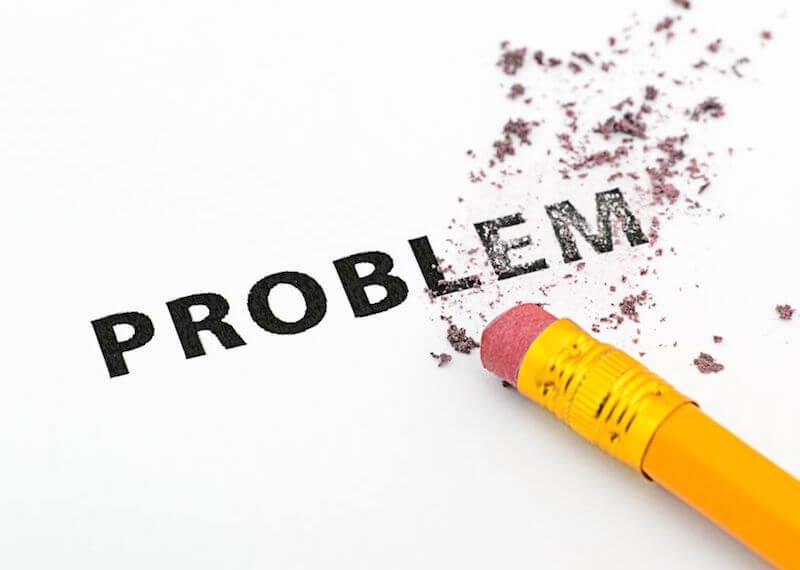Delete Our Past Like Text Messages?
. . . without the shedding of blood there is no forgiveness. (Heb. 9:22 NET)

When you are about to send a text message, you can delete it as many times as you want before sending it. If someone sends a text message to you which you do not like, you can just press the delete button and it is gone from your phone.
How different would life be if our past was like text messages – if we could just delete the things we have done which are not right. Have you, also, regretted so badly something you said or did and wished you could just delete it? Or even wished it was a dream? Well, human life does not work that way.
Man was created a spirit being and our actions have consequences. Your actions and words have consequences. There is a reason why we need forgiveness for what we have done, from God and from those we have hurt.
We cannot simply ignore our sins or wrongs and pretend they never occurred. We cannot delete our past like you do text messages. We cannot prosper when we cover our sins (Prov. 28:13.) It will be only a matter of time. The blood of Christ cleanses us as we ask for forgiveness.
The primary reason why God instructs us to stay away from sin is because it will always hurt you – always, without exception. Knowing Jesus and keeping His Word is rather a blessing to your life. It will save you from countless troubles and unnecessary headaches and heartaches.
MEDITATE
Have you ever done something and wished you could just delete the consequences, like a text message?
APPLY THE WORD
If something is covered within you and is killing you slowly, go to your pastor or spiritually mature believer and open up to get healed. Also learn to watch your actions, because they are like text messages.
PRAY
Ask the Lord to keep you from falling and doing things that will hurt you.
Recommended Read: Two Reasons Why Your Works Matters
Must Read!: What is a Daily Devotional?
Sanctify yourselves therefore, and be ye holy: for I am the Lord your God. And ye shall keep my statutes, and do them: I am the Lord which sanctify you. (Leviticus 20:7–8, KJV)

As the Great I AM that I AM, God revealed Himself as the Lord who sanctifies His people in the Old Covenant—Jehovah Mekaddishkem. But this was only a shadow of something greater that was coming in the New Testament.
Jehovah Mekaddishkem is the English transliteration of the Hebrew words for “I am the Lord which sanctify you” ( “mekaddish” = sanctify, “kem” = you). Divine names and titles in the Old Testament often reveal an aspect of God in relation to His people.
There are three keywords that underlie the meaning of sanctification: “wash,” “consecrate,” and “separate.” Sanctification essentially means to make something holy. Sinlessness is a core aspect of holiness, but there is more to holiness than sinlessness. It is the very nature of God. However, when used in reference to us humans, it means to be cleaned from sin, set apart for God, and consecrated to Him.
In the passage above, God tells the people first to sanctify themselves and then reveals He is the One who sanctifies them. Thus, He gives us the two sides of sanctification—the God side and the human side. There’s something God does and something His people do for their sanctification.
This truth was only a shadow in the Old Testament. It is in Christ that we see God fully revealed as Jehovah Mekaddishkem to His people through the sanctifying work on the cross. In speaking to the Corinthians, Paul revealed,
“And such were some of you: but ye are washed, but ye are sanctified, but ye are justified in the name of the Lord Jesus, and by the Spirit of our God.” (1 Corinthians 6:11, KJV)
This is Jehovah Mekaddishkem fulfilled in Christ: We were washed and sanctified. Note that these are in past tense, describing something God has already done. The day you received Christ, you received the bath of your life, a heavenly bath by the Spirit of God that removed every stain of sin through the precious blood of Christ. And as you continue to live on earth, the Spirit continues to sanctify you daily.
Following the sanctifying work He has already done in us, He commands us,
“For this is the will of God, even your sanctification, that ye should abstain from fornication:” (1 Thessalonians 4:3, KJV)
Now that you are clean, washed, and sanctified, He tells us to put that sanctification to work outwardly. Paul explicit states it is what God wants—His will. He gives us a very specific example of sanctification here: abstain from sexual immorality. Few things defile us, like sexual impurity. But sanctification certainly includes more than abstaining from fornication or adultery. As above, it includes living a consecrated and separated life to God daily in the way we talk, act, think, feel, and handle our bodies.
He is Jehovah Mekaddishkem, the God who has Sanctified you in Christ and continues to sanctify you every day.
Meditate
Is our sanctification completed, ongoing, or both?
Apply the Word
This is the crucial part of this devotional. Until you receive the truth that God has already sanctified you by His Spirit, you will not be empowered to be sanctified practically. Put God’s sanctification power to work in your life daily by faith in the finished work of Christ.
Pray
Ask the Lord to help you in your daily walk of sanctification.
Free Mini E-book: From Spiritual Dryness to Flourishing






